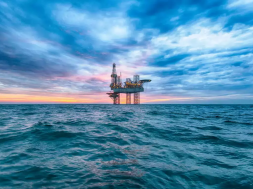
Energy security: Changing Contours, Emerging Concerns
Some countries have begun to pivot for future energy security. The UAE, to use just one example, is developing and deploying renewable (the Mohammed bin Rashid Al Maktoum Solar Park) and nuclear (the Barakah power plant) energy programmes at a breakneck pace, diversifying energy sources, reducing greenhouse gas emissions, and improving system resilience in the process. It is bold action that should pay off in the long run.
The energy experts and greenhorns from across the globe will descend on Abu Dhabi on 9th September for discourse on energy in the 24th World Energy Congress 2019. Energy security and its challenges have been an integral part of human civilisation. The world gradually used technology to wade through the challenges of energy security but after a point, the technology in energy itself took the form of challenge to overcome with. The process continues.
Optimised energy governance is a juggling act between three key dimensions: security, sustainability and equity. This ‘trilemma’ helps inform the way we think about the world’s energy mix, with the relative importance of each dependent on the lens an individual – or government – is looking through.
In particular, how we look at and evaluate energy security – the uninterrupted access to affordable energy – is changing rapidly. Historically, it has been tied to the geopolitics of any given region, in addition to the supply of oil and gas. Today, however, a broader and more complex spectrum of elements are converging to both stabilise and threaten energy security. The availability of energy sources, when considering both fossil fuels and renewables, is increasing. Today, there are more sources of energy in more countries. Shale oil is now available in abundance in the US, and an increase in production over the past decade has contributed to market fluctuations and instability. Conversely, we have seen the growing availability of renewables in countries that can draw on large supplies of wind and solar energy, like Morocco and Costa Rica for instance.
For traditionally resource-rich countries that have relied heavily on energy exports, the reduction in revenue – and profit – is creating significant challenges. Whilst fossil fuel subsidies can be reduced or eliminated – something we have already seen here in the UAE – falling revenues from oil and gas sales are significantly reducing investments in the wider economy in many of these markets, impacting both the social system and the sustainability of the economy itself.
Other vulnerabilities in the energy security equation also remain quite pervasive, centred chiefly around the transmission and distribution of energy. For instance, the threats of terrorism – both physical and cyber – are present across the whole energy value chain. Governments are also grappling with the issue of demand management – a concept that has significantly changed in the past 20 years, thanks to the digital connectivity that can help reduce peak demand and balance the grid when there are shifts in demand or supply.
But perhaps most critically, responsible short-term energy provision and longer-term planning require a careful balancing act between the three key dimensions of the trilemma. They can be competing or complementary. And in uncertain times, where the news is dominated by political instability, protectionism, tariffs, trade bloc changes and conflict – it is hard not to unconsciously place energy security before sustainability and equity. It is important not to do so.
The successful balancing of these three dimensions requires realistic long term goals-based collaboration between the whole energy ecosystem (policy makers, investors, producers, the market), and a faith that the technologies of tomorrow will provide questions that cannot be answered today. If they could, everyone would be doing it the same way.
DISCLAIMER: Except for the headline and minor editing, this write-up has been published from ‘The 24th World Energy Congress Preview’. Devdiscourse is Media Partner of World Road Congress 2019 being organized in Abu Dhabi on 9-12 September 2019.
(Disclaimer: The opinions expressed are the personal views of the author. The facts and opinions appearing in the article do not reflect the views of Devdiscourse and Devdiscourse does not claim any responsibility for the same.)
















